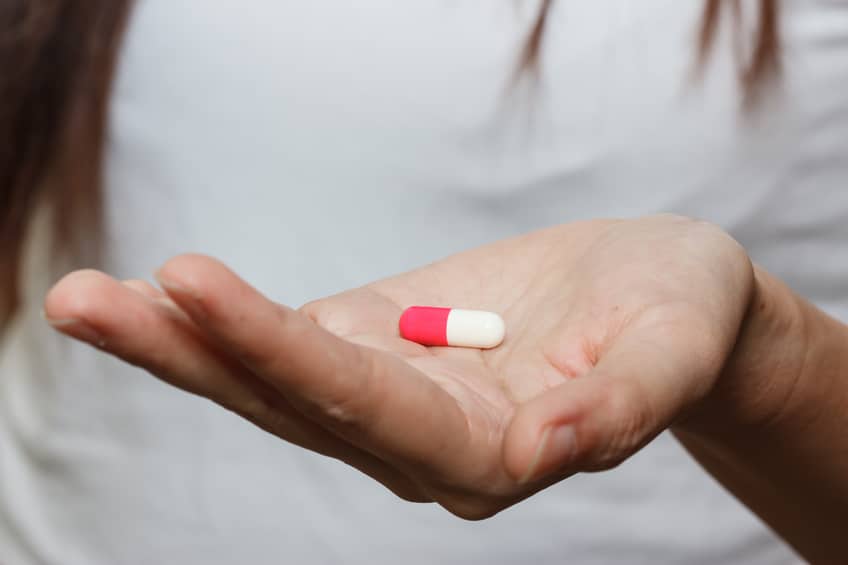For decades, getting dentures was rite of passage for seniors. Not anymore.
Today, most older folks opt for dental implants instead of dentures or bridges. Implants have the advantage of being more like natural teeth. They are permanent, don’t have to be taken out at night, and are virtually maintenance-free.
About 3 million Americans have implants. And that number is growing by 500,000 a year.1
An implant consists of a titanium post shaped like a screw. It is placed into the jawbone beneath the gum. A crown—the visible part of the tooth—is attached to the post.2
Normally, this procedure works well. But implants fail in up to 4% of patients.3 When this happens, it is often difficult or impossible to install a replacement. The patient may also suffer pain, infection, or other complications.
Researchers at McGill University found that the medications a person is taking can dramatically affect the success rate of dental implants. In particular, heartburn drugs can more than double the chances of tooth implant failure.4
The new study looked at 1,773 dental implants in 799 patients. The subjects included 58 people taking proton pump inhibitors (PPIs). These include Prilosec, Nexium, and Prevacid.
For those not taking PPIs, the failure rate was only about 3.2%. But for those taking the drugs, it was 6.8%—more than double.5
Recommended for You: URGENT HEALTH WARNING
If You’ve Come into Contact with Water Today
…drank tap or bottled water…took a bath or did dishes…even washed your hands…
It’s the Real Reason You Feel Rotten All the Time.
What’s supposed to be clean, pure, life-sustaining… Of all things, water might actually be taking years off your life instead. In THIS presentation, Dr. Deborah Gordon reveals this threat to your health (it’s more than you think)…and how to get back the energy, brain power, and body you thought you lost—fast. Go HERE now.
How Heartburn Drugs Cause Tooth Implants to Fail
Heartburn drugs affect the body’s calcium processing. This may damage the ability of the jawbone to heal around the implant screw, researchers say.
Dr. Faleh Tamimi is the lead author of the study. He is an assistant professor at McGill University’s School of Dentistry.
“Scientists already knew that drugs for heartburn reduce calcium absorption in bones and generally increase the risk of bone fractures,” he said. “But we didn’t expect to find that the negative effects of these type of drugs would be as great as they are” in dental implants.
Previous research at McGill found that people who take antidepressants are also at double the risk for implant failure. These drugs include Celexa, Paxil, Lexapro, Prozac, and Zoloft. They can reduce bone formation.6
In addition, the researchers found that one type of drug greatly increases implant success.
Beta blockers, which are typically prescribed to lower blood pressure, reduce the failure rate to a miniscule 0.6%, the study found. Beta blockers are known to increase bone formation.7
Despite the study results, it’s probably not worth taking a beta blocker to improve your implant chances. They have side effects such as dizziness, fatigue, and diarrhea. And they may lower your blood pressure to dangerous levels.
But if you are planning to get a tooth implant and are taking heartburn or antidepressant drugs, ask your doctor if you can temporarily go off the medications while your implant heals.
In any case, you should tell your dental surgeon about all medicines you are taking.
In Good Health,

Angela Salerno
Executive Director, INH Health Watch
Like this Article? Forward this article here or Share on Facebook.
References:
1http://www.aaid.com/about/press_room/dental_implants_faq.html
2http://www.brisbanedentalimplantgroup.com.au/dental-implant-failure-rate/
3http://www.deardoctor.com/articles/dental-implants-tooth-replacements/
4https://www.eurekalert.org/pub_releases/2016-10/mu-wsd102516.php
5http://medicalxpress.com/news/2016-10-dental-implants-dont.html
6http://medicalxpress.com/news/2014-09-drugs-depression-linked-failure-dental.html
7http://www.mcgill.ca/channels/news/why-some-dental-implants-work-and-others-don%E2%80%99t-263643

